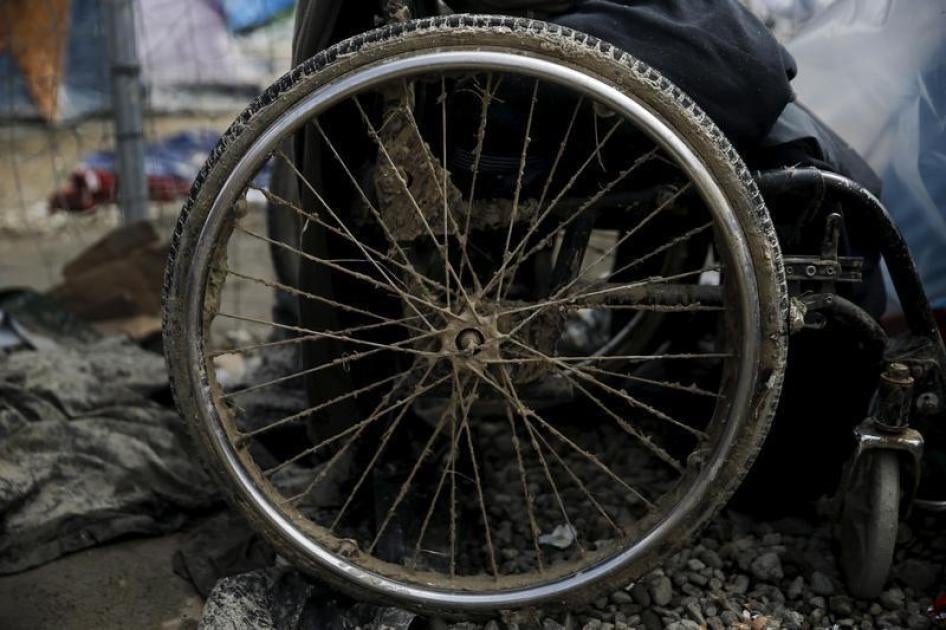“Here it is very hard for me to go to the toilet. My husband helps me at the door and random women help me inside the toilet,” Nawael, a 34-year-old Syrian woman who uses a wheelchair after being paralyzed from an airstrike in Syria, told me. I met her, her three children, and husband last March at the informal refugee camp at the Athens port of Piraeus.
Nawael is among dozens of refugees with disabilities I’ve met in Greece over the past year. Like many other people with disabilities forced to flee, Nawael told me of their treacherous journey to Europe, and how her husband carried her most of the time. She spoke of the difficulties in Greece in accessing a proper place to sleep, the toilet, food, and medical assistance.
I saw thousands living in abysmal conditions at the port of Piraeus. The camp sprang up earlier this year when Balkan countries closed their borders, leaving tens of thousands of migrants and asylum seekers stranded in Greece. After spending roughly 10 days in Idomeni, near Greece’s border with the former Yougoslav Republic of Macedonia, living in the mud and the rain, Nawael and her family returned to Athens in hope of find better living conditions.
But when I met her, she was sleeping inside an overcrowded passenger waiting area at the port, with just a few blankets on the ground as a mattress, and next to the toilets in order to access them easily. The overpowering odor from the toilets was giving her strong headaches so she could hardly sleep at night. The lack of space in the few showers made it difficult for her to wash herself, and she hadn’t bathed in over a month. She was embarrassed for not taking a shower for so long. “My husband helped me and I washed my hair with cold water, but then I got sick,” she told me. “10 days ago, I got my period and I swear to God, I still haven’t had a shower. And I [usually] pray, but given that I haven’t had a shower [to perform required ablutions], I can’t pray.”
Similar abysmal conditions exist in closed, European Union-sponsored facilities on the islands, created to register and process new arrivals. Thousands of asylum seekers, including many people with disabilities, are living there in deplorable conditions, and fights are breaking out between residents. The EU and Greece urgently need to respond to the specific needs of refugees and asylum seekers with disabilities. Their rights and dignity are at stake.










